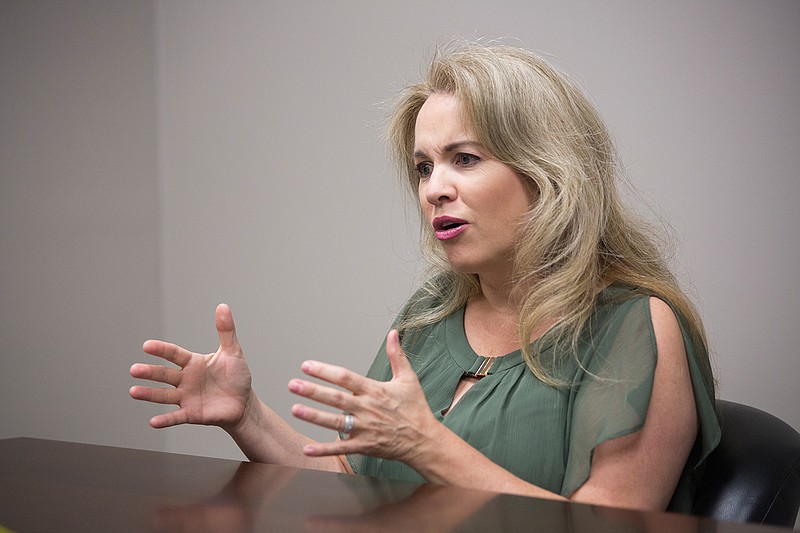As a forensic nurse, Michelle Ruth Center Ortiz has learned the body is a crime scene.
Ortiz, a 1984 graduate of Ashdown, Ark., High School, has a history of nursing including 22 years as a Navy nurse, but since 2002, she has been a certified forensic nurse.
Ortiz is now the forensic nursing program manager for the Department of Defense at the Naval Medical Center in Portsmouth, Va. The program investigates sexual assaults.
Forensic nurses provide specialized care for patients who are victims or perpetrators of trauma, both intentional and unintentional, according to a statement by the International Association of Forensic Nurses.
But first and foremost, they are nurses. Victims of violence and abuse require care from a health professional who is trained to treat the trauma associated with the wrong that has been done to them-be it sexual assault, intimate partner violence, neglect or other forms of intentional injury, according to the association. Ortiz said the patient also may be dealing with unintended pregnancy and sexually transmitted diseases.
The transition to forensic nursing was natural for Ortiz.
She is the third generation of nurses. Her mother, Molly Wilson of Texarkana, Ark., was a nurse at CHRISTUS St. Micheal Health System, and her grandmother Ruth Turley was a nurse at St. John Hospital in Tulsa, Okla.
Ortiz returned to Ashdown recently to attend her high school class reunion.
Ortiz and her mother also attended a banquet Sept. 29 at Henderson State University in Arkadelphia, Ark., to award the Ruth Turley/Molly Wilson Nursing Scholarship funded by the family.
Ortiz discovered forensic nursing in 2002 after she was deployed for seven months to Djibouti, Africa.
While in Africa, she read the book "The Evil That Men Do" by FBI profiler Roy Hazelwood, who was a member of the agency's Behavioral Science Unit and researched the dark and twisted psyches of the sexual predators.
"It was an amazing book, and it was eye-opening. It was an epiphany," Ortiz said.
She contacted him, and Hazelwood became a mentor for her by email, recommending classes and suggesting research material. Hazelwood died last year.
Ortiz has been successful in "marrying science and nursing" to become a forensic nurse, she said.
"Forensic nurses are also a critical resource for anti-violence efforts. They collect evidence and give testimony that can be used in a court of law to apprehend or prosecute perpetrators who commit violent and abusive acts," according to the association.
The nurses bridge the gap between law and medicine. As the forensic nursing program manager, Ortiz has been called to testify in criminal cases from the U.S. to Japan.
She said she gets frustrated about investigations when law enforcement agencies have limited or no training.
"They open up a rape kit and start reading the instructions," Ortiz said.
Ortiz directs a team that treats the patient physically and mentally. After the emergency room staff treats the victim, and if the victim is "not on death's door," Ortiz's team starts its analysis.
"I see the darkest side," Ortiz said.
But she copes with the trauma and the evil.
"I'm using science and nursing to solve the puzzle. If I didn't, I'd go crazy. You hear the worst of human behavior. I tell the victim, 'We're going to take care of you,' and we try to get the full picture of what happened. We have to stick with what can be proven and what cannot. It's also the quality of the witness," Ortiz said.
"The body is the crime scene. We do an analysis from head to toe. We look at how the evidence was collected. Was it a good chain of custody? Did the nurse change gloves between body parts?" she said.
"I've put prisoners in Leavenworth prison and have had prisoners exonerated. One prisoner was looking at 120 years in prison, and his sentence was reduced to six months in jail," Ortiz said.
The prisoner was overcharged by the prosecution, she said.
"I fight fair, and I fight hard for boys and girls. It's easy for me, because I'm a mother of a son and daughter. Both sides deserve justice," Ortiz said.

